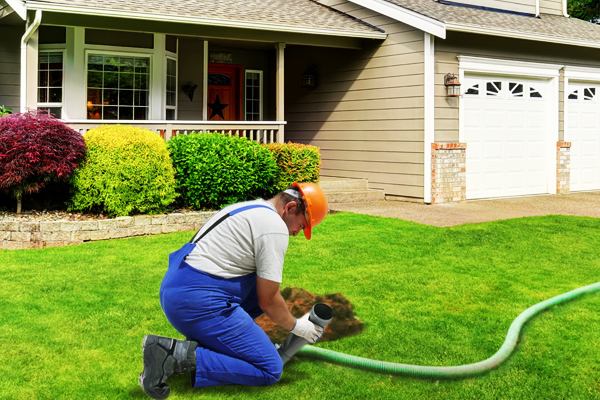
05
Maintaining a healthy septic system is crucial for the proper treatment of household wastewater. One key player in the functionality of septic tanks is bacteria. These microorganisms break down solids, ensuring the efficiency of the system. In this article, we explore the importance of septic tank bacteria and provide tips for promoting a healthy septic system, including essential services such as septic tank pumping, repair, installation, and cleaning offered by professional septic companies.
One of the best ways to support a healthy septic system is to avoid using harsh chemicals. Chemical drain cleaners, antibacterial soaps, and excessive use of household cleaning products can disrupt the balance of septic tank bacteria. These chemicals can kill the beneficial bacteria responsible for breaking down solids. Opt for septic-safe alternatives and use cleaning products in moderation to preserve the natural microbial activity in the tank.
Routine septic tank pumping is a critical maintenance task to prevent the accumulation of solids and maintain a healthy bacterial balance. Over time, sludge and scum build up in the tank, reducing its capacity and hindering the bacterial breakdown process. Professional septic companies offer septic tank pumping services to remove these accumulated solids, ensuring the system operates efficiently. The frequency of pumping depends on factors such as tank size, household size, and water usage.
What goes into your septic system directly impacts the bacterial balance. Avoid flushing non-biodegradable items, grease, and excessive amounts of solid waste down the drain. These substances can disrupt the natural breakdown process and contribute to clogs. Educate household members about proper waste disposal practices to prevent unnecessary strain on the septic tank bacteria.
Scheduling regular inspections by a professional septic company is essential for catching potential issues early on and ensuring the overall health of the system. During inspections, professionals can assess the bacterial activity, check for leaks, and identify any signs of septic tank repair needs. Addressing issues promptly helps prevent more extensive problems and protects the bacterial ecosystem within the tank.
If issues such as leaks or damage arise, prompt septic tank repair is crucial to prevent further complications. Professional septic companies have the expertise to identify and address problems, restoring the system to optimal functioning. In cases where a new septic tank installation is necessary, professionals can guide homeowners through the process, ensuring that the new system is appropriately sized and installed to support a healthy bacterial environment.
In addition to septic tank pumping, regular septic tank cleaning is essential for maintaining bacterial balance. Cleaning involves removing accumulated scum and sludge that may not be entirely eliminated during pumping. Professional septic tank cleaning services help prevent the buildup of solids, allowing the bacteria to thrive and continue breaking down waste efficiently.
Promoting a healthy septic system involves understanding and supporting the essential role of septic tank bacteria. By investing in professional services such as Charlotte Septic Pros, homeowners can ensure the longevity and efficiency of their septic systems. As the custodians of these underground waste treatment facilities, it's our responsibility to nurture the microbial workforce that keeps our septic systems running smoothly, contributing to a cleaner environment and sustainable wastewater management.

22
Can Bacteria Additives Eliminate the Need for Pumping? If you own a home with a septic system, you’ve probably seen…
Read more
12
A single slow drain in your home can feel like a minor inconvenience. Maybe the sink takes a little longer…
Read more
05
Are Slow Drains a Septic Issue or Just a Clog? Slow drains are one of those household problems that start…
Read more
02
What Septic Service Techs See That Homeowners Miss Most homeowners only think about their septic system when something goes wrong.…
Read more
21
Simple Habits That Protect Your Septic System A well-functioning septic system does its job quietly, but the moment something goes…
Read more
14
Pump Now or Pay Later: The Real Cost of Skipping Maintenance A properly functioning septic system is easy to forget…
Read more
11
Why Your Septic System Always Acts Up at the Worst Time Homeowners often feel that septic problems strike at the…
Read more
04
Early Warning Signs Your Septic Tank Needs Pumping For homeowners who rely on a septic system, routine maintenance is not…
Read more
29
Why Does My Septic System Smell Fine One Day and Terrible the Next? If you own a home with a…
Read more
19
Is Your Septic System Overdue? Simple Home Checks You Can Do Today For many homeowners, the septic system is a…
Read more